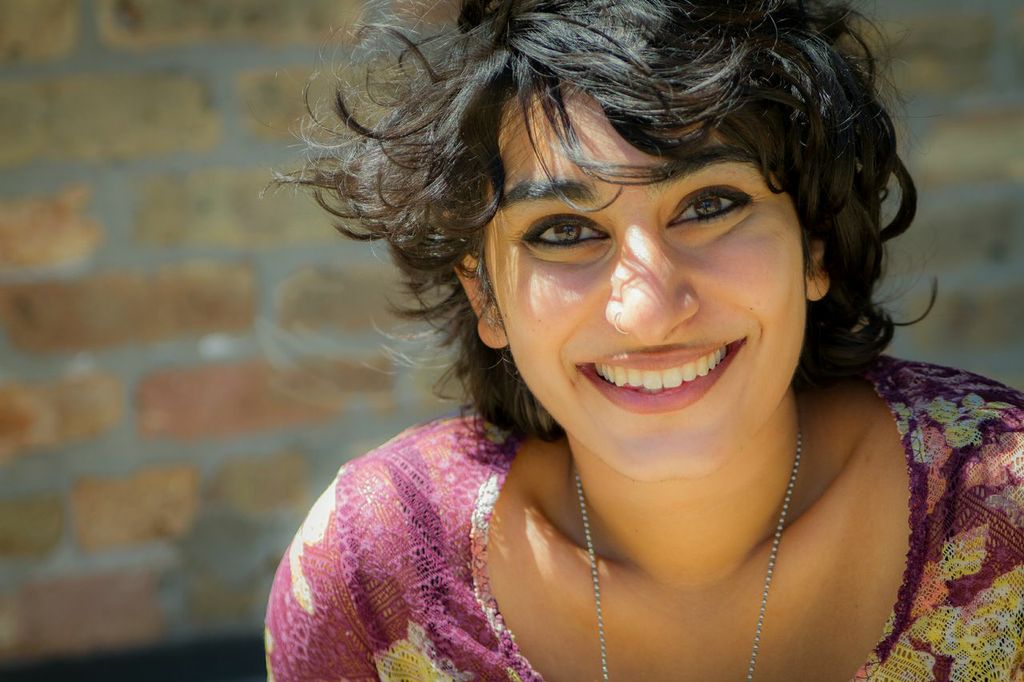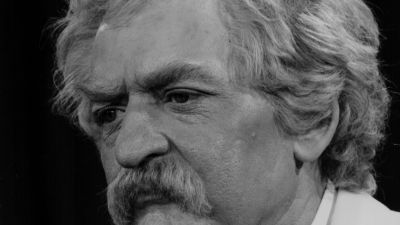April is National Poetry Month, and we’re celebrating by featuring examples of “civic” poetry from new and familiar voices. Throughout the month we’ll be discussing what it means to be civic through the art of words. Join us on Twitter at #civicpoetry.
Poet Kyle Dargan talked with Fatima Asghar as part of our civic poetry month feature.
Kyle Dargan: What do you believe poets and poetry can add to the conversation around public issues, social justice, the environment?
— Fatimah Asghar
Fatimah Asghar: Poetry can show us things we didn’t realize were true. I can’t say how many times I’ve read a poem and been like, “I’ve never even thought about that.” Whether the poem shows me another side to the story, or a slowing down of an event or feeling, or an articulation of a feeling that I had that I did not know I had. Some of the best poems show us a window to empathy, something we had not previously considered within us. That’s what I think that poetry and poems can add to the conversation around social justice — that moment of humanization and empathy, as well as a call for mobilization.
KD: What does the word “change” imply for you, and do you have any personal theory of change?
FA: Change can be such a wonderful thing, and is so natural to the world. Seasons, death, growing up — all these things are so natural, yet they also cause such fear. I try and think of change as a necessary thing, but know that I am a sculptor in that change — I have the power to exert control and shape the change I need to see.
KD: What, if anything, have you been doing or thinking about differently as an artist since the 2016 political cycle?
FA: People of color have been under threat since this country was first called “America,” so the urgency with which I write has not changed. I’ve continued to do my work, be a witness where I can be, be a call for urgency where I can be. Something that is particularly terrifying to me about the 2016 political cycle is the speed at which some things have moved, but I’ve been really heartened by the response in terms of protest and mobilization on the behalf of people who put their foot down.
KD: “If They Should Come for Us” is a blur — with its avoidance of punctuation and the way its turns blend communities/identities into a “people” — a people both personal to the author and expansive. Might you talk about blurring (though not generalizing) as a poetic strategy, maybe even a means of artistically representing intersectionality?
— Fatimah Asghar
FA: I come from many different backgrounds and groups. I want the most expansive definition of “my people” as possible, but not a “my people” that’s this airy, generalized idea of humanity. I want a strong sense of “my people,” built with solidarity at its heart. A pledge that if they come for you, they come for me too. The blurring in the poem came from wanting to be as expansive with my call as possible, but also to be wildly specific — people who feel under threat, who are afraid of this countries rhetoric and structural violence. The blurring and lack of punctuation mimicked the feeling of urgency I had when writing the poem, but also exactly what you say — to highlight the intersectional lives that many of us live.
If They Should Come for Us
these are my people & I find
them on the street & shadow
through any wild all wild
my people my people
a dance of strangers in my blood
the old woman’s sari dissolving to wind
bindi a new moon on her forehead
I claim her my kin & sew
the star of her to my breast
the toddler dangling from stroller
hair a fountain of dandelion seed
at the bakery I claim them too
the sikh uncle at the airport
who apologizes for the pat
down the muslim man who abandons
his car at the traffic light drops
to his knees at the call of the azan
& the muslim man who sips
good whiskey at the start of maghrib
the lone khala at the park
pairing her kurta with crocs
my people my people I can’t be lost
when I see you my compass
is brown & gold & blood
my compass a muslim teenager
snapback & high-tops gracing
the subway platform
mashallah I claim them all
my country is made
in my people’s image
if they come for you they
come for me too in the dead
of winter a flock of
aunties step out on the sand
their dupattas turn to ocean
a colony of uncles grind their palms
& a thousand jasmines bell the air
my people I follow you like constellations
we hear the glass smashing the street
& the nights opening their dark
our names this country’s wood
for the fire my people my people
the long years we’ve survived the long
years yet to come I see you map
my sky the light your lantern long
ahead & I follow I follow
Originally published in Poetry (March 2017)




